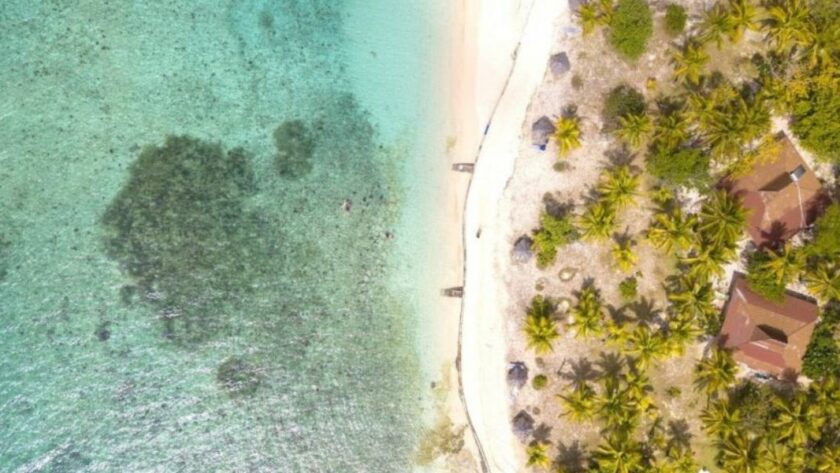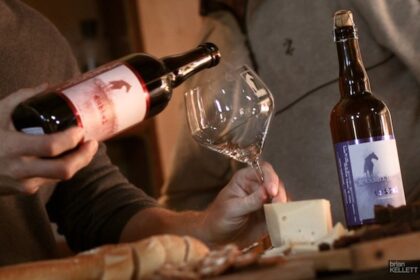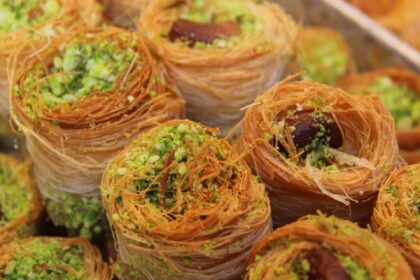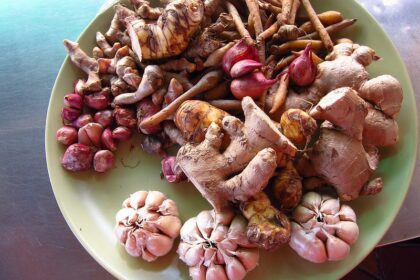By Francesca Brooking. This guide to ecotourism in Fiji contains affiliate links to trusted partners.
Fiji is an archipelago of more than 300 islands in the South Pacific. It’s most famous for its picture-perfect beaches, swaying palm trees, volcanic landscape, and crystal clear lagoons.
Its sun-soaked islands coax you into lazy days on the beach, and beneath the warm seas are some of the best-preserved coral reefs left in the world.
It’s not all beaches in Fiji though. Swathes of undisturbed jungle cover great volcanic mountains across its interiors, interspersed by waterfalls and rural villages renowned for their hospitality.
So, for the conscious traveler wanting to explore this island paradise sustainably, here’s your ultimate guide to ecotourism in Fiji.
The Importance Of Ecotourism In Fiji
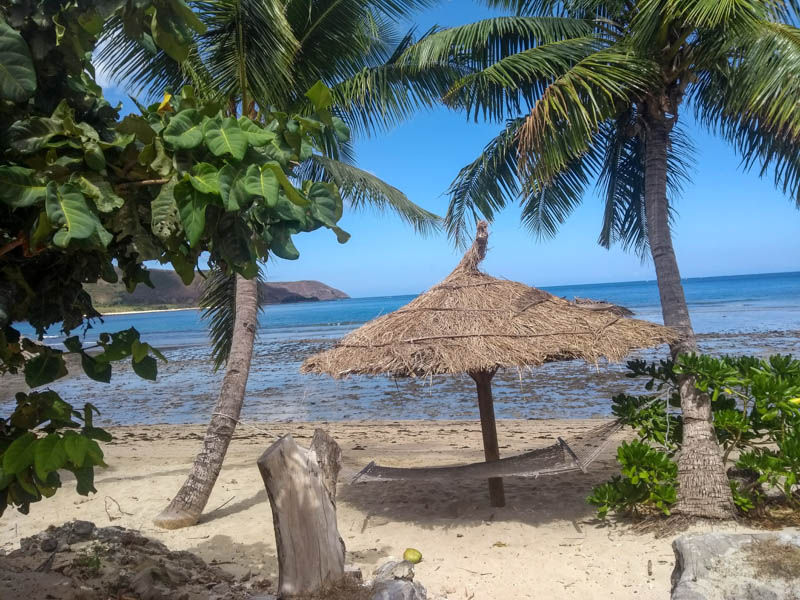
Fiji is synonymous with a tropical island paradise; but, this destination is perhaps more acutely aware of the effects of climate change than most, being particularly vulnerable to rising sea levels.
Villages are already being displaced further inland to prevent them from being washed into the sea. The weather is also becoming more unpredictable with the cyclone season getting increasingly deadly.
It’s never been a more important time to consider our impact as travelers to protect Fiji’s vulnerable ecosystems.
Although ecotourism is growing in the country, Fiji has been slack in allowing large resorts to remove sections of the reef to create marinas and swimming pools. Overfishing is also a problem.
So with that in mind, taking care to book resorts and activities that are mindful of their impact is a vital way to ensure the health of Fiji’s reefs, environment, and local economies for generations to come.
The Best Eco-Friendly Things To Do In Fiji
Here are some ecotourism activities that help you enjoy Fiji responsibly:
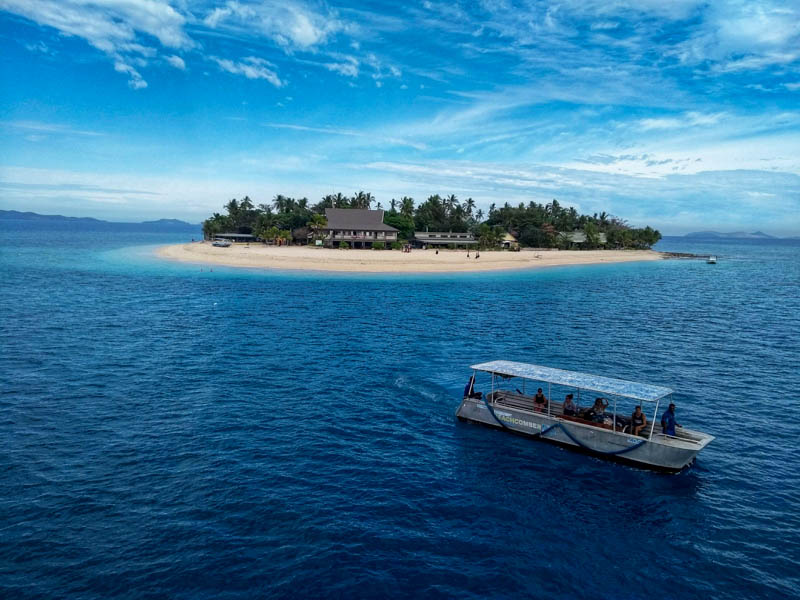
Enjoy Fiji Island Hopping
One of the most popular things to do in Fiji is go island hopping. Although there are plenty of islands to choose from, by far the easiest route is up the Mamanuca and Yasawa Islands.
Lying to the west of Fiji’s main island of Viti Levu, the Mamanucas are 30 small volcanic islands that join a group of about 20 islands in the north known as the Yasawas.
The Mamanucas are characterised by picturesque golden beaches, calm seas, abundant coral reefs, and marine life such as reef sharks and turtles.
The Yasawa Islands are particularly dramatic with jagged peaks, crystal clear lagoons, and white sandy beaches that have attracted many a film set in their time.
A well-trodden backpacker trail, this island hopping route is serviced solely by South Sea Cruises which owns a range of tour brands including Awesome Adventures Fiji.
You can choose from a range of island-hopping passes which can be as flexible and as long or short as you want. The only caveats are that you need to have your accommodation booked before you get to your island and stay there a minimum of two nights at each place.
South Sea Cruises recognizes the importance of protecting the environment in Fiji. It set up the Yasawa Trust Foundation which runs conservation and research projects in the Yasawas and Mamanucas. It’s also a member of the Mamanuca Environment Society.
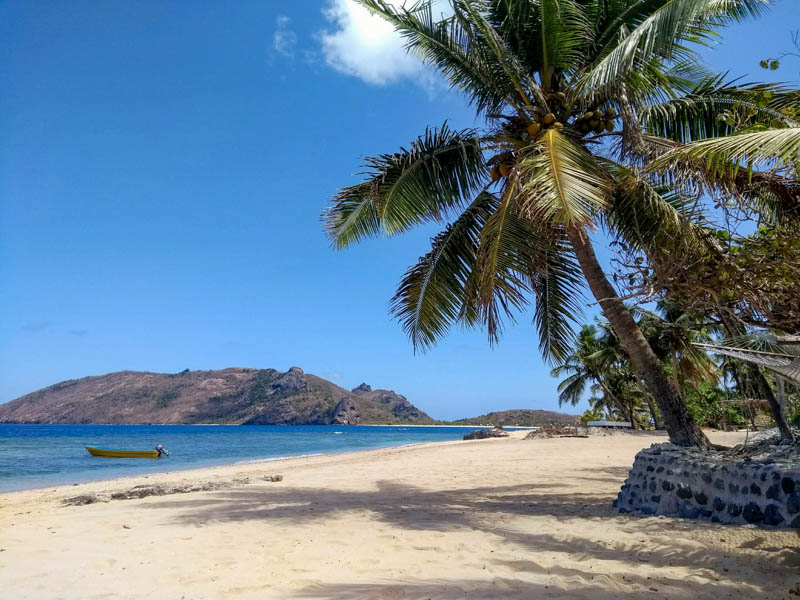
Do A Homestay
Fijians are some of the most friendly and hospitable people in the world. The best way to experience the culture and support the local community is to do a homestay with a family.
This type of accommodation gives you a unique insider perspective on a destination that many travelers miss. You’ll be treated to traditional home-cooked meals, dances, games, and expert travel tips from a local. Bring cash to contribute towards meals and activities!
You can find Fijian homestays on most major accommodation booking platforms, including Homestay.com. As always, check reviews and whether or not they have any eco certifications.
It’s customary to bring a gift to your homestay. This applies to village visits, too. A good gift is yaqona — otherwise known as kava, a dried root of a plant. This is often drunk in a kava drinking ceremony which is a popular cultural activity in the South Pacific.
You will most likely be invited to partake in a kava drinking ceremony when you’re there. Don’t worry, it’s perfectly safe. It just makes you feel relaxed!
Book Fiji Eco Tours & Activities
Fiji has plenty of ecotourism activities and tour operators that combine amazing experiences with cultural and environmental sensitivity.
Some of the best ones to book include:
Rivers Fiji – offering adventure packages, sea kayaking, and river rafting, the tour operator works closely with local villages to protect ecotourism in Fiji.
Discover Fiji Tours – this award-winning adventure tour company offers water-based experiences all over Fiji.
Vinaka Fiji – for ethical voluntourism, look no further than Vinaka Fiji. You can volunteer meaningfully in villages and conservation projects in the Yasawas.
Kula WILD Adventure Park – home to a bird conservation park, it also has a zipline and waterpark and education center. It’s a great family-friendly way to support Fiji’s wildlife!
Eco resorts will also have their own list of experiences and attractions that support sustainable tourism in Fiji, so remember to check them out too!
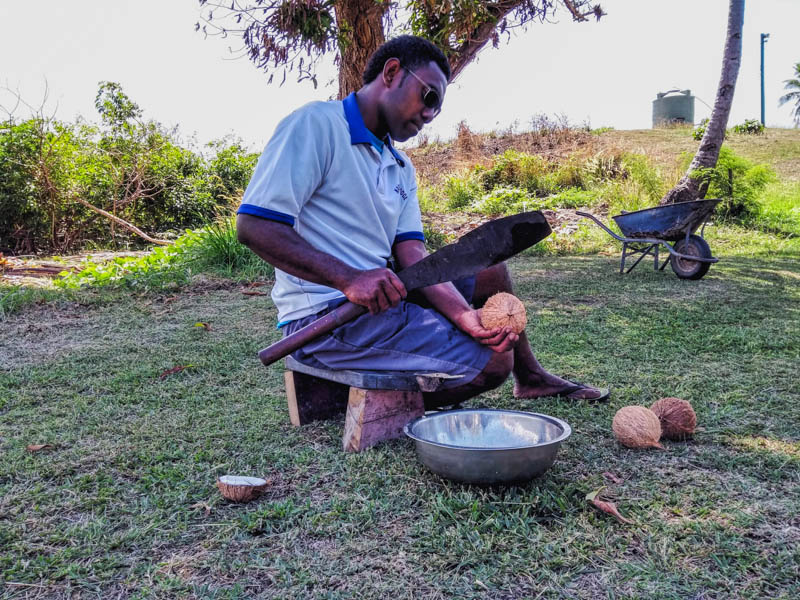
Visit One Of Fiji’s National Parks
Fiji is perhaps best known for its stunning beaches, but it also has some gorgeous national parks, making it a great destination for hiking.
There are four national parks to explore: Sigatoka Sand Dunes, Koroyanitu National Heritage Park and Colo-I-Suva Forest Park on Viti Levu, and Bouma National Heritage Park on Taveuni.
Each national park offers pristine jungle, cascading waterfalls — and sand dunes in Sigatoka’s case! You will need to pay a small entrance fee, which goes to the running of the parks so bring cash.
If you would rather not explore alone, another great option is doing a guided hike with Talanoa Treks — Fiji’s only dedicated hiking company.
It’s partnered with rural communities to help you explore Fiji’s interiors in an authentic and eco-friendly way. Choose between 1-4 night itineraries trekking through the highlands of Viti Levu and stay in remote villages along the way.
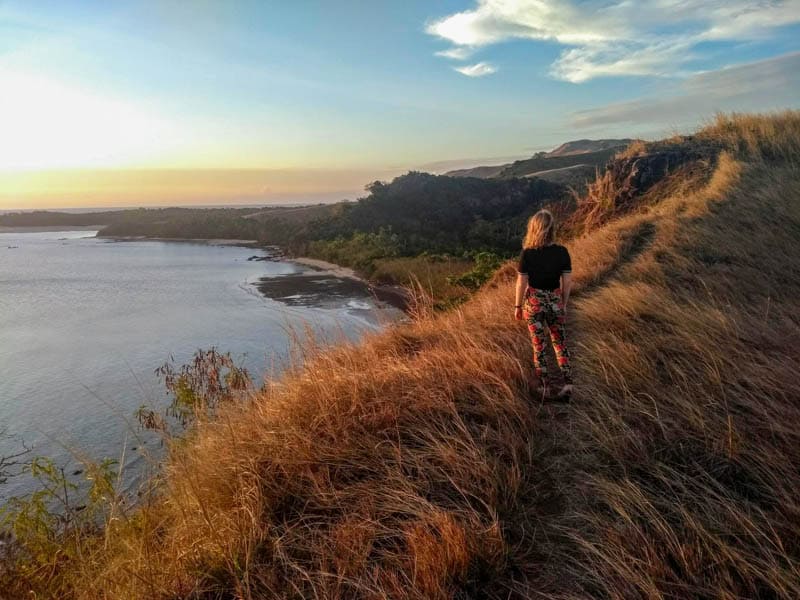
Go Snorkeling
The waters around Fiji are home to some of the most pristine coral reefs left in the world, making them a haven for sea life. You can snorkel around any of the islands and have an amazing time — particularly if you head to the Yasawas as they have access to the Blue Lagoon!
If you want to take it further, experiences you can do include swimming with reef sharks, diving with bull sharks, and snorkeling with manta rays.
The best place to go swimming with reef sharks and bull sharks is Barefoot Kuata Island Resort in the Yasawas.
This eco resort has a resident team of marine biologists that monitor the reefs to keep human impact minimal. The tours are ethically run by expert tour guides that ensure you interact with the sharks safely and responsibly.
The best place to see manta rays is the channel between Nanuya Balavu and Drawaq, two islands that make up part of the Yasawa Island group.
You can book a nearby resort that offers this activity such as Barefoot Manta Island Resort, another eco-resort run by the same company and with the same ethical wildlife principles.
Manta ray season in Fiji is from May to October.
Where To Stay: Green Resorts In Fiji
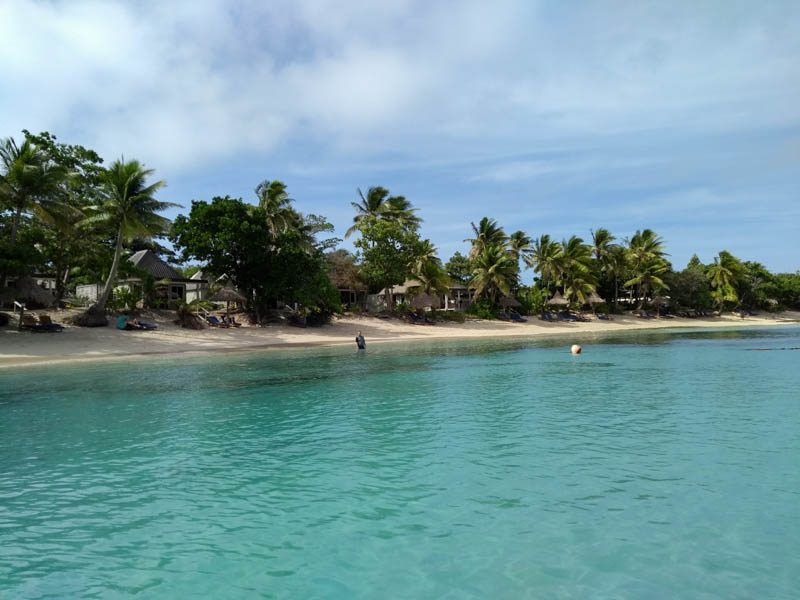
Resorts are an important part of your Fiji trip — particularly if you’re staying on remote islands where they’re often the only place to eat, sleep, and arrange activities around. That’s why an ecotourism holiday in Fiji is not complete without staying at an eco resort.
The good news: you can find eco resorts to suit a range of budgets — so you’re covered whether you’re a backpacker or luxury traveler!
Eco resorts typically use their environment to reduce their carbon footprint. For example, they might use the sun to heat water (tip: take a shower in the early evening if you want warm but not scorching!), have organic vegetable gardens, or turn the electricity on at night only.
Some resorts may even support local conservation projects and house resident biologists who monitor the area.
Eco resorts in Fiji can be booked on most major booking platforms. If you’re island-hopping, you can also find them on Awesome Adventures.
Some of the best eco-friendly resorts to book include:
- Six Senses Fiji, Mamanuca Islands
- Mantaray Island Resort, Yasawa Islands
- Palmlea Farms Oceanfront Resort, Vanua Levu
- Maqai Beach Eco Surf Resort, Taveuni
- Colo-i-Suva Rainforest Eco Resort, Viti Levu
How To Be An Ecotourist In Fiji
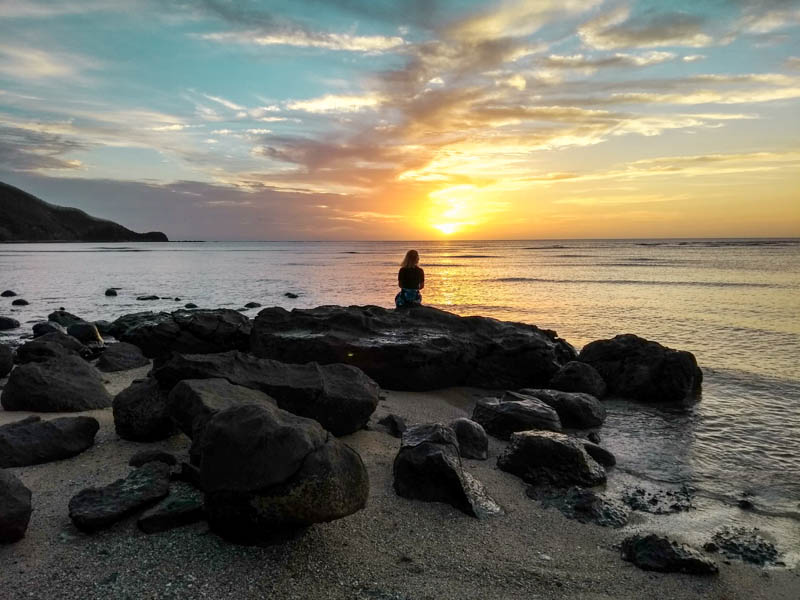
Here are some easy ways to be an eco-friendly traveller in Fiji:
Fly Direct & Offset
Fiji has the challenging position of being quite remote in the South Pacific Ocean. Flying is the most practical option for a lot of travelers. So, when booking your flights, try to take the most direct one as they require less fuel than stopovers.
Also, consider offsetting the emissions of your flight. Although flying less is always better than offsetting, it’s a good way to neutralize unavoidable emissions.
Look for reputable carbon offsetting projects that are certified by Gold Standard, like these.
Wear Reef-Safe Sunscreen
Protect Fiji’s reefs and marine life by wearing reef-safe sunscreen.
Most traditional chemical-based sunscreens have been found to cause coral bleaching as they contain toxic chemicals such as oxybenzone and octinoxate. In fact, a single drop can damage 6.5 swimming pools’ worth of coral!
Opt instead for mineral-based sunscreen with non-nano zinc oxide and titanium dioxide. It’s safe for you and the planet!
Pack A Plastic-Free Packing List
Supporting plastic-free travel is vital when visiting Fiji — and really everywhere.
Try to keep single-use plastic off your packing list to avoid contributing to plastic waste in Fiji. You can do this by swapping plastics for reusable items.
This could mean opting for refillable toiletries instead of mini branded versions, taking a bamboo toothbrush instead of plastic, or opting for a filtered water bottle rather than buying bottled water.
One thing to note: it’s not always possible to rely on your own water bottle on some of the more remote island resorts as they don’t always have a fresh water source.
Use Public Transport
Keep carbon emissions low by using public transport rather than hiring a vehicle while travelling.
If booking transfers to and from activities or the airport, look for coaches or minibuses as it’s more energy-efficient and reduces congestion on the road.
Avoid The Seaplane
When going island hopping, consider taking the catamaran instead of the seaplane — particularly if it’s a popular tourist route like the Mamanuca or Yasawa Islands.
It’s a much easier, more affordable and more efficient way to travel. Plus, that mode of transport can service more people than a seaplane that can only carry a handful of people at a time.
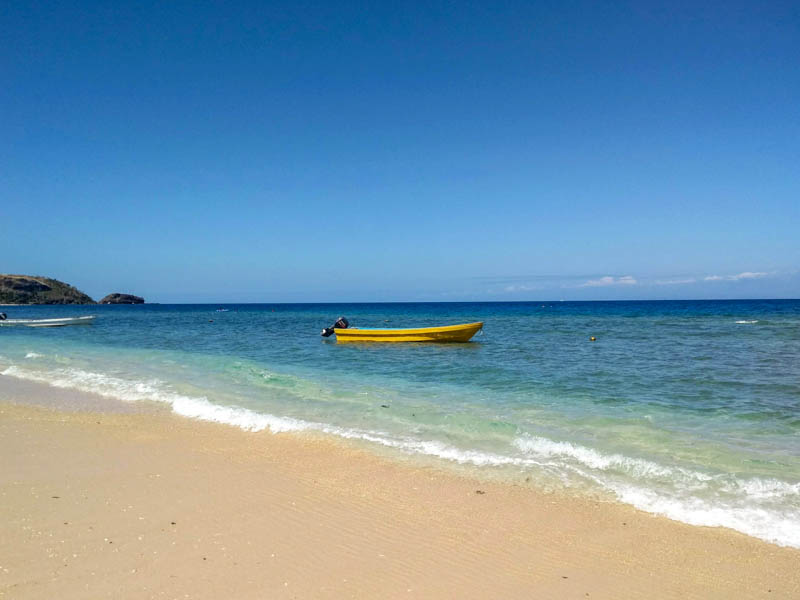
Do Ethical Activities
As you start to plan your Fiji itinerary, think about what activities you would like to do. Many of the resorts offer activities that you can book directly through them. Popular ones include village visits and wildlife activities.
Don’t be afraid to ask questions about how these are run and who the operators are. For village visits, look at how the residents are portrayed, who benefits, and if there’s guidance on gifting or showing respect. Avoid visits to places like orphanages at all costs.
For wildlife activities, look at how many tourists the tour operator takes, how the animals are promoted, what they do to attract the animal, and if they offer guidance on keeping a respectable distance from them. Do your research to ensure you’re engaging in ethical wildlife tourism and not irresponsible wildlife tourism.
Stay At Lesser-Known Resorts
It’s easy to pick out the most popular resorts, but going further afield to lesser-known and quieter resorts can give you a much more authentic experience.
They’re often smaller businesses that employ local staff who are passionate about ensuring you have the best possible experience.
With fewer guests to contend with, you can connect more with people and you have access to better accommodation. Plus, you’re helping resorts that may not get the same footfall as more popular ones maintain the eco-impact.
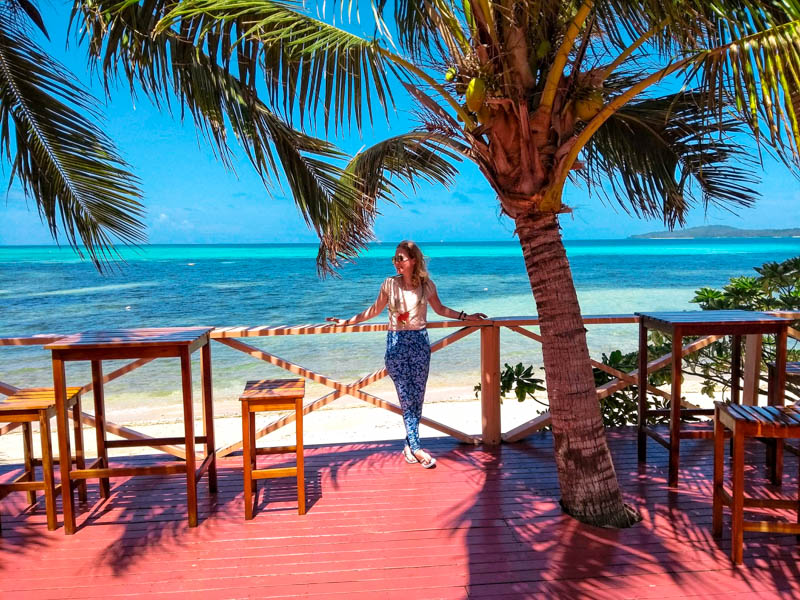
Leave The Resorts
It’s easy to just stay by the pool or on the resort’s private beach for the duration of your stay in Fiji — which is fine some days; however, make sure you get to know the real Fiji before you leave.
Get out of the resort even if it’s on an ethical tour so you can connect with the local culture and support small businesses with your money.
Too often, foreign chain resorts hoard all the tourist money at a destination so here’s your chance to give back and share the love — or dollar!

